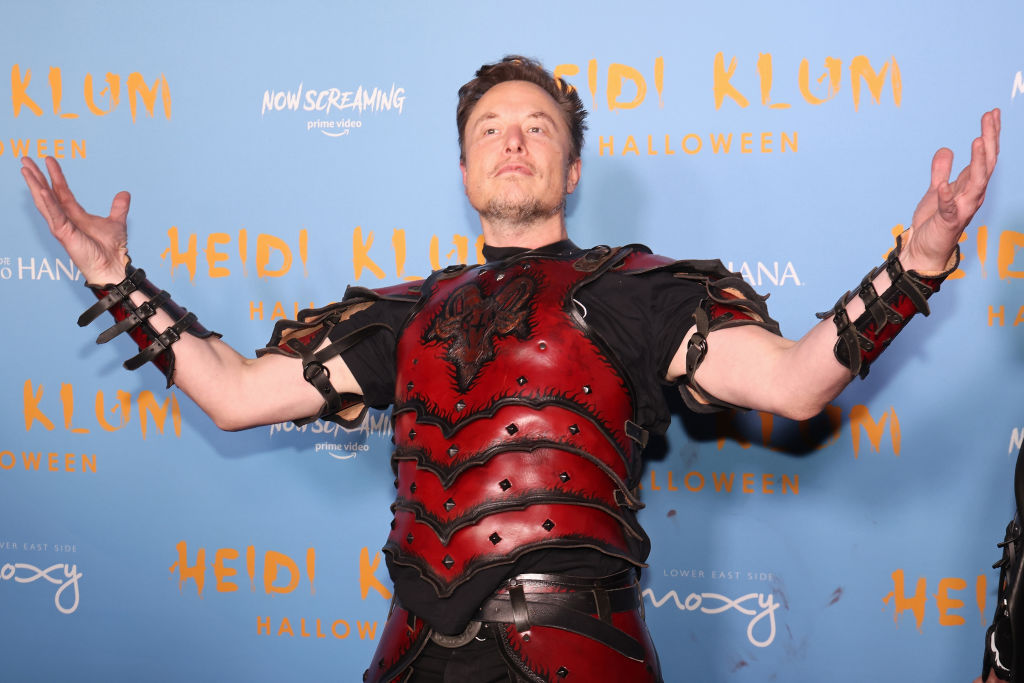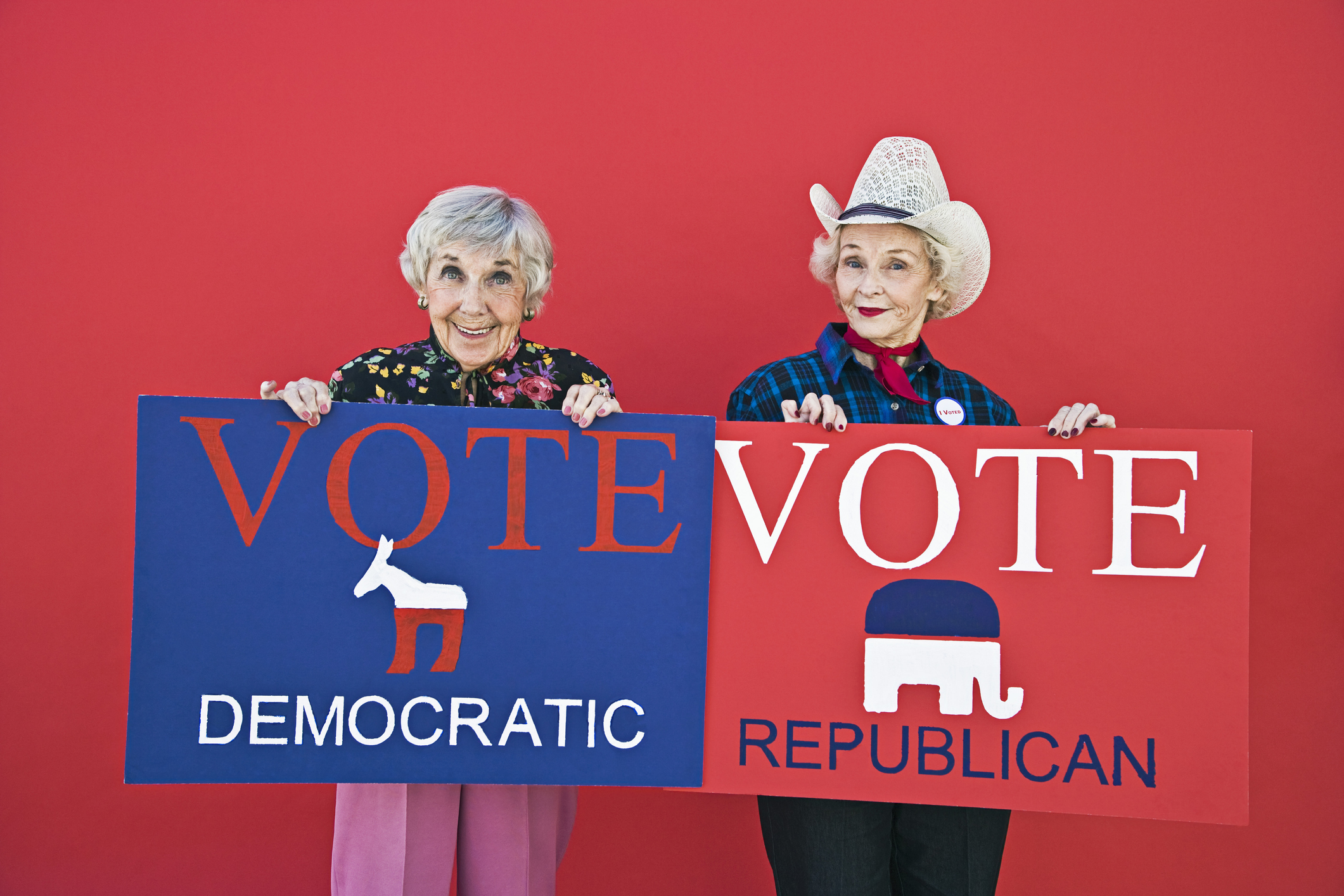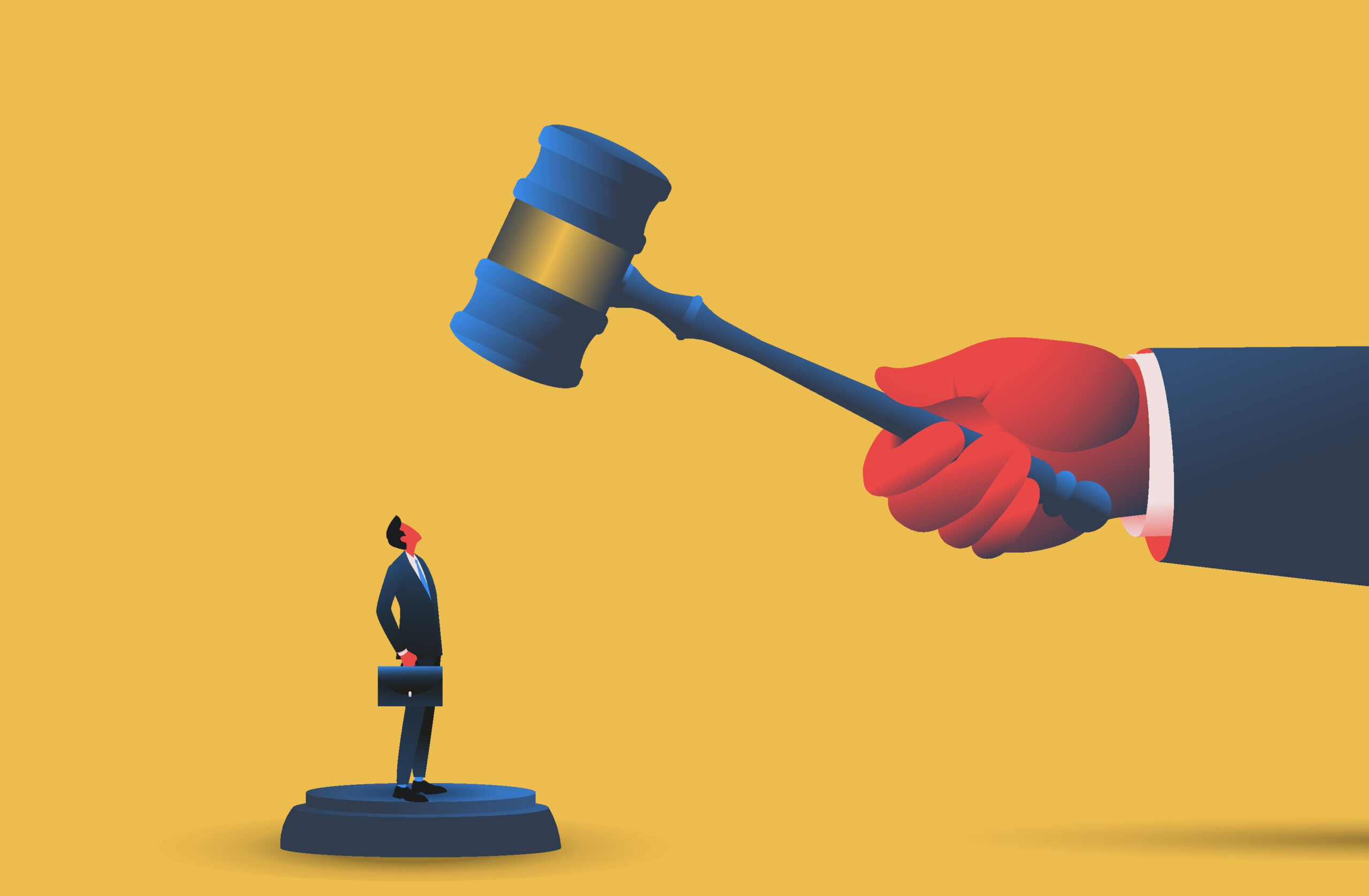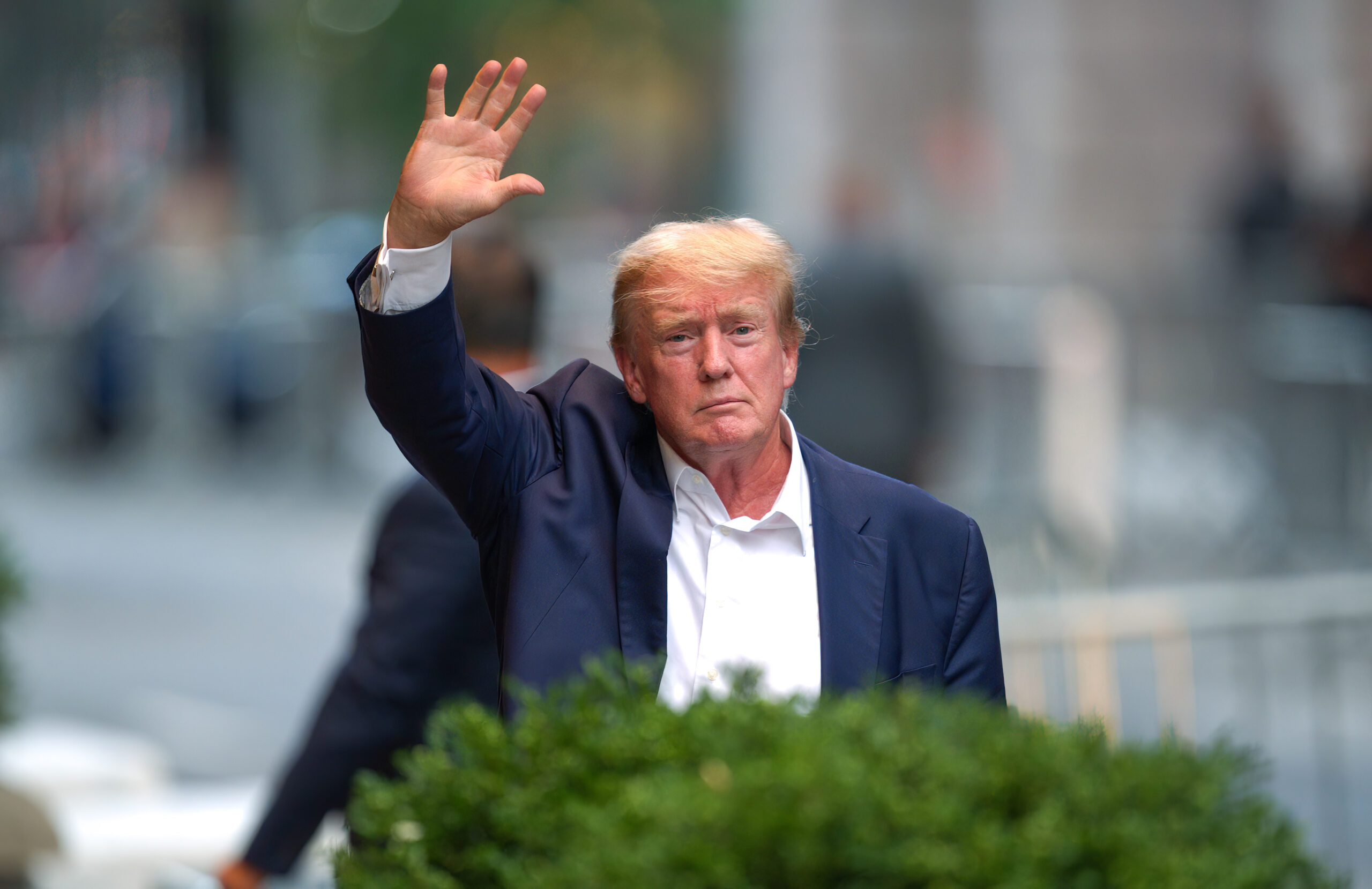America's dark wizard to the rescue?
After Trump: The Political and Moral Legitimacy of American Government
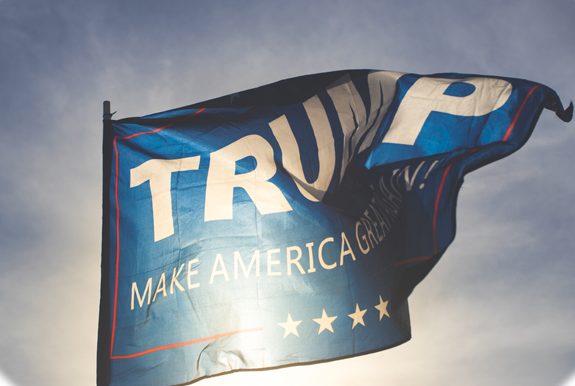
Claremont Institute Senior Fellow John Marini is one of the few experts on American Government who understood the rise of Trump from the beginning of the 2016 election cycle. Now he looks to the fundamental question that Trump's presidency raises: is the legitimacy of our political system based on the authority of the American people and the American nation-state, or the authority of experts and their technical knowledge in the service of "progress"?
Donald Trump’s 2016 campaign and victory gave rise to political and social turmoil rarely seen in a presidential election. His election did not arise out of a clear, recognizable, and widely agreed upon political, economic, or social crisis. But the political havoc produced in its wake has created a crisis of authority and legitimacy that shows no signs of abating as we approach 2018’s midterm elections.
In his campaign, Trump established that his candidacy was based on an implicit understanding that America was in the midst of a great crisis—a crisis of leadership. Trump’s explicit criticism of both parties, social and economic elites, and the intellectual elites who had come to dominate the public discourse informed his partisan appeal. His criticism resonated with that part of the electorate that thought America was on the path of economic, political, and moral decline. On the other hand, those who opposed Trump denied the seriousness of the crisis and saw Donald Trump himself as the greatest danger.
Every crisis creates its own possibilities and opens up new opportunities for political change. It also establishes its own subsequent dangers. Modern American politics has revealed new problems that are unlike those of past crises. Political crises arises when the desire for change becomes more pressing than the necessity of preserving the old order. In such circumstances the questions of what makes it possible to recognize the need for change, what kind of change is necessary, and how to achieve it become fundamental political questions.
Machiavelli was among the first to reflect on this problem at a time when religion had established an orthodoxy that made it difficult to even conceive of the need for change. Consequently, it was nearly impossible to bring about real change. For good or ill Machiavelli taught modern man how to think about change, and how to bring it about. If the need for change comes to be recognized, and it can be transformed into a political movement, the one who puts himself at the head of bringing about such change also places himself in a precarious position.
In revealing change as a political phenomenon, Machiavelli noted:
“nothing is more difficult to handle, more doubtful of success, nor more dangerous to manage, than to put oneself at the head of introducing new orders. For the introducer has all those who benefit from the old orders as enemies, and he has lukewarm defenders in all those who might benefit from the new orders. This…arises partly from fear of adversaries who have the laws on their side and partly from the incredulity of men, who do not truly believe in new things unless they come to have a firm experience of them. Consequently, whenever those who are enemies have opportunity to attack, they do so with partisan zeal, and the others defend lukewarmly so that one is in peril along with them.”
If Trump is perceived as a threat to the legitimacy of the old order, it is not surprising that he has few defenders in either party or the permanent government.
Trump’s Legitimacy
The question that arises after Trump is this: is the crisis real, and is it possible, and necessary, to establish the kind of change that makes it impossible to preserve the old order any longer? If so, on what ground is it possible to establish the legitimacy of change, and defend its novelty?
The justification for radical change in the last two centuries has been established on the theoretical ground of rational, or historical, necessity. Modern revolutions have been justified by mobilizing mass political resentment on behalf of a condemnation of the past. Progressive hope and political change is understood with respect to a future good. In opposition to contemporary intellectual orthodoxy, however, Trump made a defense of change that is not understood in terms of historicist, or progressive, thought. Rather, he defended change not on the basis of a future good, but the good of the past, a specifically American past. He wants to make America great again.
In looking ahead, it appears that Trump’s fate, his success, is almost wholly dependent upon his ability to completely transform the moral and political landscape of the national government. That would require finding a new ground of public authority, outside of the Washington establishment, on the foundation of a political appeal to the people. The electorate can be the only sovereign authority capable of re-establishing a new ground of legitimacy. In electoral terms, it would require the re-creation of a new majority consensus that must be determined politically as the only means of establishing the moral legitimacy of government.
There is nothing new in such an attempt. Indeed, transformative elections had been necessary in earlier times to establish or re-establish a link between the parties, the office holders, and the people. The most important critical elections in America have made it possible to justify and legitimize republicanism (in the election of 1800), reaffirm the fundamental principles of equality and liberty (in the election of 1860), and confront the growing power of the economic royalists (in the election of 1932). Those elections authorized and established the legitimacy of one political party in terms of policy making. But, they also made it possible and necessary for both parties to accept and adapt to a mandate that would establish a consensus for decades.
Donald Trump’s partisan attack on the old order derived, in part, from his view that the political parties no longer form a meaningful link between the people and the government. It was a position, and strategy, that could not but alienate him from both parties and the permanent government. In denying the link between the parties and the electorate, Trump appeared to accept the view that the parties had abandoned the electorate in terms of representing the interests of the people and the nation as a whole. Organized interests had become mobilized around the administrative establishment in Washington. Party patronage and the political support of the people in the country at large had been replaced by bureaucratic patronage. That patronage had become privilege on behalf of those private interests. And the public institutions themselves had become the captive of those organized interests.
This had resulted in a permanent government of professional elites, one that had established itself as the vital center between the people and the government. Trump has refused to acknowledge the authority of this policymaking establishment. In his view, elite intellectual rule had undercut the political authority of the people as sovereign. It is not surprising that Trump had few public intellectuals who could or would support his election as he framed it.
“Rational” Legitimacy Versus Political Legitimacy
The authority of the new elite cannot be understood merely in terms of group or class, although identity politics has come to be justified in moral terms, using those categories established by class, race, or gender. But it was not social, economic, or political power alone that established the authority of those elites. What united the vital center—and established its prominence and legitimized its public authority—is specialized knowledge. It was that knowledge, not those categories of identity, which determined the status of the elites that came to occupy the centers of power. Their status was a product of the intellectual authority derived from history, science, and social science.
Even American elections came to be framed by Washington professionals. Social scientists, media pundits, and policy professionals, liberal or conservative, may differ in their party preferences, but they are united in their dependence upon empirical science and its methodology in their understanding of politics, society, and economics. Applied to elections, the empirical method required that politics be understood in terms of measurable and quantifiable aggregates. That proved compatible with the scientific or positivist understanding of law and interest group liberalism. And it provided an intellectual defense of technical expertise as the justification for rational, or administrative, rule.
At the same time, historicism or critical theory has established itself as the closest thing we have to a public philosophy, one which provided a moral defense of group politics, and a politicized civil society, and culture. Public morality was authorized and legitimized by an intellectual elite. Moreover, its intellectual authority made it possible to transform policy preferences into a moral defense of progressivism and the administrative state. But that morality and those policies have never established a moral consensus that could be embodied in law.
No political or moral consensus, derived solely from our intellectual elites, could accommodate political, social, and policy differences, in a manner that is compatible with a truly common good. The Washington establishment rejected the traditional moral authority that established the foundations of constitutionalism and made it possible to reconcile public law and private rights, limited government and an autonomous civil society. This made it difficult to create a moral consensus that originates in civil society, one capable of establishing the ground of a political, or governing, consensus.
As a result, it has become almost impossible to reconcile the moral ground of political rule in a manner compatible with self-government. The morality mandated intellectually by political, social, and cultural elites has destabilized traditional social institutions and produced a chaotic civil society. It has undermined the role of a free public discourse in the establishment of any truly public opinion capable of reconciling morality and the consent of the governed. Although public opinion is crucial in determining what can be done politically, it cannot be mandated, or controlled, from the center. It must arise organically from the people in the country at large, and should originate in civil society institutions.
This is not a new problem. When Lincoln was faced with the necessity of confronting slavery as a political and moral issue, he could not side with the abolitionists. They understood the problem in terms of the intellectual primacy of morality alone, which made a practical or political solution to the problem of slavery impossible. They denied what Lincoln affirmed—the political, or prudential, necessity of obtaining the consent of the governed.
Lincoln knew that a political consensus would be necessary to establish the legitimacy of law. He knew that public opinion would have to be transformed in a manner that would allow the moral condemnation of slavery to be understood and defended on the ground of the political principle of equality. In that way, it would become possible to establish a public opinion, derived from the people, as the basis of a political and moral consensus (a constitutional majority). That consensus would determine the legitimacy of government, provide for equal protection of the law, and vindicate the rule of law.
The Administrative State
The contemporary defense of the Constitution is not a defense of its principles. It is a defense of the policy preferences of the social, economic, legal, and administrative elites who have substituted their intellectual authority for the political and moral authority of the people. The administrative state has established such expansive powers within the national government that those powers cannot be circumscribed in a manner compatible with constitutional limitations, nor can each of the political institutions, established as separate powers, function amicably in a constitutional manner, i.e. one that requires each branch to pursue public policies on behalf of a common good.
In the last several decades, the leaders of both the House and the Senate, and their counterparts in the White House, have had to acquiesce to those conditions imposed by administrative rule simply to keep the government functioning. They have been forced to rely on the permanent government to provide the only options that leaders of both parties and branches of government could potentially choose.
Questions concerning the legitimacy of the administrative state have only been asked by the courts, especially the Supreme Court. The Supreme Court is the only political branch of government that still takes the Constitution seriously as the foundation of its power and legitimacy.
Ironically, since the New Deal, the Court’s moral and political understanding of the Constitution has been made compatible with the defense of the administrative state. The intellectual underpinnings of the modern study of law—scientific positivism—has established the foundation of all law school education based on of the authority of its technical rationality, which is seen as essential to the ongoing social progress of the modern state.
In America, it is this “knowledge class” that has come to determine the orthodoxy concerning the meaning of administrative and constitutional law. But, out of political necessity, it has had to defend the administrative state on constitutional grounds. Not surprisingly, control of the judiciary became essential to the moral and political defense of progressivism. Trump’s appointment of Brett Kavanagh is controversial because it raises the possibility that a new majority will call into question the constitutional legitimacy of the administrative state. It is not surprising that thousands of administrative and constitutional law professors opposed Kavanagh.
The Supreme Court, the least democratic branch of government—the most insulated from popular control—has become the most important moral and political policy-making branch of government. It has established the intellectual and legal justification for allowing the other branches to ignore their constitutional role. In doing so, all of the branches have come to serve the interests of the administrative state, at the expense of a political and constitutional role for Congress and the Presidency. As a result, they have deprived the people of political representation in the constitutional institutions of government.
The Rebellion
At every important juncture in the growth of the modern state, there have been those who have questioned the expansion of the powers of the administrative or regulatory state.
In recent American politics, the 2008 election established what appeared to be the high point of 21st century progressivism. But its very success produced a crisis of liberalism that threatened the progressive legacy established over much of the prior century. Barak Obama won the most consequential and decisive presidential election of any Democrat since Lyndon Baines Johnson. His party gained control of both houses of Congress. His campaign slogan said it all: Hope and Change. Hope is established and animated by an awareness of an abstract and future good; the purpose of government is to bring about social change on behalf of that vision.
In his first term, Obama sought to achieve the dream of every progressive president since Teddy Roosevelt and Woodrow Wilson: to make it possible and even necessary for government to provide the material conditions necessary to secure freedom, by expanding the right to economic, social, and personal well-being. In FDR’s memorable phrase, “necessitous men cannot be free”; the purpose of government is to establish universal security against natural necessity, relief from those very exigencies established by life itself. Government must establish the guarantees of universal security against those necessities that make freedom impossible outside the confines of a rational, or administrative, state.
In his attempt to fulfill the progressive vision of a completed social democracy, Obama ignored the existing problems that plagued society and the economy. He staked his reputation on universal health care, an expanded regulatory apparatus, and greater control of the financial markets. His legacy would be seen in the completion of the political conditions that were required in order to consolidate and perpetuate the administrative state. Obama’s success, however, and his neglect of the working classes, precipitated a political rebellion.
With little support from the political and social elites of either party, a relatively unorganized, grassroots political movement mobilized against those policies. It was large enough to retake the House in 2010, and the Senate in 2014. Curiously, no one in Washington seemed to know how to take advantage of the new political circumstances. Although progressive reform precipitated the political crisis, no political insider of either party, liberal or conservative, were willing or able to lead the new movement.
When Donald Trump appeared on the scene in 2015, he seemed to offer an alternative to both political parties as well as the Washington establishment.
What Trump Revealed
But since the election of Donald Trump, there has been little incentive within the Washington establishment to change the way it does business. Both parties and their leaders have readily adapted to the conditions imposed by the necessity of bureaucratic rule. As a result, elements of both the Democratic and Republican parties, and the legal, technocratic, educational elites, have allied themselves with the bureaucratic establishment on behalf of and in defense of the administrative state. Moreover, those elites, whose interests and knowledge are essential to its operation, have come to believe in the essential justice of the administrative state. Consequently, nearly all of the organized forces within society and government who have a stake in centralized administration are likely to defend the use of administrative power against political opponents who appear to deny its moral authority or legitimacy.
It has become clear that the neutrality of the bureaucracy, once thought to be the fundamental requirement of its legitimacy, and the ground of its acceptance by all political partisans, is no longer understood to be the necessary ground of maintaining its bipartisan support. The administrative state has established its own legitimacy apart from its political or constitutional authority, within the ranks of both political parties and the courts. Bureaucratic rule is defended as essential to solving, in a non-political way, the problems of modern technical, or rational, government and society. Moreover, the bureaucracy has become a power in its own right. It has become a political faction on behalf of administrative rule.
It is now nearly impossible to prevent that part of the government committed to the perpetuation of the administrative state from preserving the political conditions of unlimited bureaucratic rule, when control of the presidency, or one branch of Congress, is in the hands of its defenders. More importantly, the defenders of administrative government are increasingly unable to understand, let alone tolerate, those who fail to recognize the legitimacy of the administrative state.
Both Democratic and Republican Party proponents of the administrative state, and their defenders in the political institutions and the bureaucracy, are more likely to believe that the practical requirements of a modern economy and society confer legitimacy on administrative rule. Social progress becomes for them the contemporary moral equivalent of constitutional authority. As a result, the growth and consolidation of the administrative state has made it more difficult to control the apparatus of government by political means alone. It is no longer clear that the bureaucracy understands itself as the willing servant of its political masters, when the ‘masters’ are perceived as a threat to the administrative state.
The Real American Crisis
Is it possible to revive the political conditions necessary to make the separation of powers work on behalf of a defense of constitutional government? If there is no meaningful theoretical and practical defense of constitutional government, the legitimacy of politics and law—its cognitive and moral foundation—rest upon the authority of the intellectual elites.
If there is any objective ground for that authority, it is thought to be established by rational, scientific knowledge. At the same time, what is left of public morality is now understood in terms of values, or subjective preferences mandated by individual will. In moralizing and politicizing will, post-modern historicism can justify only passionate commitment to social justice, understood empirically, as the final goal of human aspiration, dependent upon technical rationality.
What has become difficult to defend is the political idea of justice, which in the long history of political thought, despite great disagreement among the philosophers concerning how to achieve it, has almost always been understood in terms of a common good. The demise of the public authority of philosophy and religion has left only the authority of science as the ground of objective and meaningful knowledge.
This knowledge has transformed social, economic, and political life in the last century. As Hannah Arendt noted: “Since the beginning of the twentieth century, technology has emerged as the meeting ground of the natural and historical sciences…. The comparatively new social sciences, which so quickly became to history what technology had been to physics, may use the experiment in a much cruder and less reliable way than do the natural sciences, but the method is the same: they too prescribe conditions, conditions to human behavior, as modern physics prescribes conditions to natural processes.”
In the public world, the intellectual and social elites have established those conditions which authorize rational rule. They have transformed the social, economic, and cultural order. And even in the private world of civil society, itself fundamentally transformed by rational organizational structures, the political and civil rights of the ordinary citizen rest upon a precarious foundation, established by the ever-changing meaning of social progress.
Whether it is possible to restore political rule, or even defend the nation in a world established by such “rational” authority, is a question that can no longer be avoided. Technology has universalized the reach of science and social science in a manner that, for many, makes a global order both possible and desirable. Moreover, since rational and intellectual knowledge is itself universal, it seems almost irrational not to seek a uniformity, compatible with rationality, at the highest level. For those who think this way, the universal homogenous state is understood to be historically inevitable.
If Trump has recognized a real political crisis, it must be understood as a crisis of the sovereignty of the American nation and its people. It was the authority of the people, established politically as a social compact, that was institutionalized as a constitutional order. Is that order still defensible?
In his political campaign, Trump made his defense of the political a defense of the country, its borders, and its citizens. In his United Nations address, Trump, once again, made a defense of American sovereignty, but also a political defense of the nation-state. As he noted:
“To unleash this incredible potential in our people, we must defend the foundations that make it all possible. Sovereign and independent nations are the only vehicle where freedom has ever survived, democracy has ever endured, or peace has ever prospered. And so we must protect our sovereignty and our cherished independence above all . . . together, let us choose a future of patriotism, prosperity, and pride. Let us choose peace and freedom over domination and defeat. And let us come here to this place to stand for our people and their nations, forever strong, forever sovereign, forever just, and forever thankful for the grace and the goodness and the glory of God.”
If there is a current intellectual crisis, it requires re-consideration of the legitimacy of the authority of the people and the nation-state. In other words, the justification of political rule has become problematic. The modern world has been created on the rational authority of science, and its offspring, social science. In the understanding of modern elites, history, understood theoretically in terms of its “rationality,” has revealed the state as the vehicle for the administration of progress. Politics must give way to technical, or rational, administration.
Hegel insisted that organized knowledge must replace the rule of the philosopher, statesman, and even the people themselves. In John Dewey’s progressive liberal democracy, “social intelligence” establishes the legitimacy of the authority that makes social progress on behalf of the people possible. Freedom is no longer understood in terms of self-government or political rule. Rather, in order for rational science to serve the will of the people, the people must relinquish their reason—their right of public deliberation—as the ground of establishing policy through politics and law.
The restoration of political rule is a difficult, if not impossible task, in light of the great power of those rational structures that order our world. It is not yet clear as to what forces—intellectual, economic, social, and political—will establish the mastery of the modern world in the 21st century. In any case, Trump’s political appeal has revealed a difficulty that is likely to persist: the tension between rational and political rule.
It remains to be seen if the American people understand or will come to understand themselves as political citizens of the nation-state, or as administrative subjects of a rational global order. Much depends upon whether the American people have become so dependent upon the administrative state that the overthrow of the established order is not merely difficult, but undesirable. In that case, political self-government, and individual freedom, will cease to be important elements of the American regime.
The American Mind presents a range of perspectives. Views are writers’ own and do not necessarily represent those of The Claremont Institute.
The American Mind is a publication of the Claremont Institute, a non-profit 501(c)(3) organization, dedicated to restoring the principles of the American Founding to their rightful, preeminent authority in our national life. Interested in supporting our work? Gifts to the Claremont Institute are tax-deductible.
The regime’s effort to bankrupt its opponents must be stopped.
A dangerous madman is up for election.
Democrats are busy trying to gin up support for Biden among white women.
Lawfare threatens to destroy our constitutional republic.
A half-measure whose time may have come.

